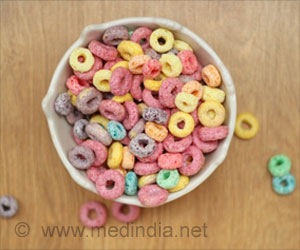- Ultra-processed foods are high in added sugars, fats, and salts, leading to obesity and chronic diseases
- These foods lack essential nutrients, contributing to poor overall health
- Moderation and informed choices are key to maintaining a balanced diet
Dietary Guidelines For Indians
Go to source).
Ultra-processed foods can account for nearly 60% of the total daily calorie intake in many Western diets. #ultraprocessedfood #westerndiets #medindia’
Bread and Butter Under the Spotlight
Ultra-processed foods, which include products like packaged breads and spreads such as butter, are typically high in added sugars, fats, and salts while being low in essential nutrients like protein and fiber. Packaged breads often contain additives and preservatives to extend shelf life and improve texture, which can contribute to their classification as ultra-processed. Similarly, butter, especially when processed or flavored, can be high in saturated fats and may include additional ingredients for taste and consistency. The consumption of these ultra-processed foods has been linked to various health issues, including an increased risk of cognitive decline, stroke, and other severe health conditions. It is recommended to opt for minimally processed alternatives to maintain better overall health and reduce the risk of these adverse outcomes.Understanding Ultra-Processed Foods
Ultra-processed foods are products that have undergone extensive industrial processing and contain numerous ingredients not typically used in home cooking. These foods are designed to enhance flavor, texture, and shelf life, making them convenient but potentially harmful.Characteristics of Ultra-Processed Foods
High Levels of Added Sugar, Fat, and Salt: These ingredients improve taste and appeal but contribute to obesity, heart disease, and diabetes.Low Nutritional Value: Despite being calorie-dense, these foods lack essential nutrients like vitamins, minerals, and fiber.
Extensive Use of Additives: Contain synthetic ingredients such as artificial flavors, colors, preservatives, and emulsifiers.
Highly Palatable and Convenient: Designed to be easy to consume and highly appealing, which can lead to over consumption (2✔ ✔Trusted Source
ICMR Classifies Bread, Butter, and Cooking Oil as Ultra-Processed Foods: Detailed Report
Go to source).
Side Effects of Ultra-Processed Foods
The ICMR warns that ultra-processed foods are excessively high in fats and low in fibers and essential nutrients. Consuming these foods can lead to a range of health issues.- Obesity: High in unhealthy fats and sugars, leading to. weight gain.
- Accelerated Aging: Poor nutritional content can hasten aging processes.
- Increased Risk of Heart Attack and Stroke: High levels of fats and sodium can lead to cardiovascular diseases.
- Diabetes: Excessive sugar and low fiber content increase the risk of type 2 diabetes.
- Poor Overall Health: Lack of essential nutrients compromises overall well-being.
Examples of Ultra-Processed Foods
According to the ICMR, ultra-processed foods (categorized as "level C" foods) include:- Commercially Produced Bread and Breakfast Cereals
- Cakes, Chips, and Biscuits
- Fries, Jams, and Sauces
- Mayonnaise and Commercially Produced Ice Cream
- Protein Powders and Peanut Butter
- Soy Chunks, Tofu, and Frozen Foods with Additives
- Commercially Produced Cheese, Butter, and Paneer with Additives
- Plant-Based Meats and Refined Flours of Cereals, Millets, and Legumes
- Energy Drinks, Health Drinks Added to Milk, and Beverages
Moderation is Key
It’s impractical to completely eliminate processed foods from our diets, but moderation is essential. Social media trends emphasize healthier eating habits, urging consumers to favor natural and minimally processed alternatives. Understanding what goes into our food helps in making informed choices without succumbing to fear.In summary, ICMR’s classification of bread, butter, and cooking oil as ultra-processed foods highlights the importance of dietary awareness. These guidelines encourage reducing the intake of highly processed foods and opting for more natural alternatives to promote better health. Moderation, coupled with knowledge about food ingredients, can help maintain a balanced diet and prevent the adverse health effects associated with ultra-processed foods.
References:
- Dietary Guidelines For Indians - (https://main.icmr.nic.in/sites/default/files/upload_documents/DGI_07th_May_2024_fin.pdf)
- ICMR Classifies Bread, Butter, and Cooking Oil as Ultra-Processed Foods: Detailed Report - (https://voiceofhealthcare.org/updates/ICMR-CLASSIFIES-BREAD,-BUTTER,-AND-COOKING-OIL-AS-ULTRA-PROCESSED-FOODS:-DETAILED-REPORT~WRicxY85Ju7c4Be_H3ELa)
Source-Medindia













